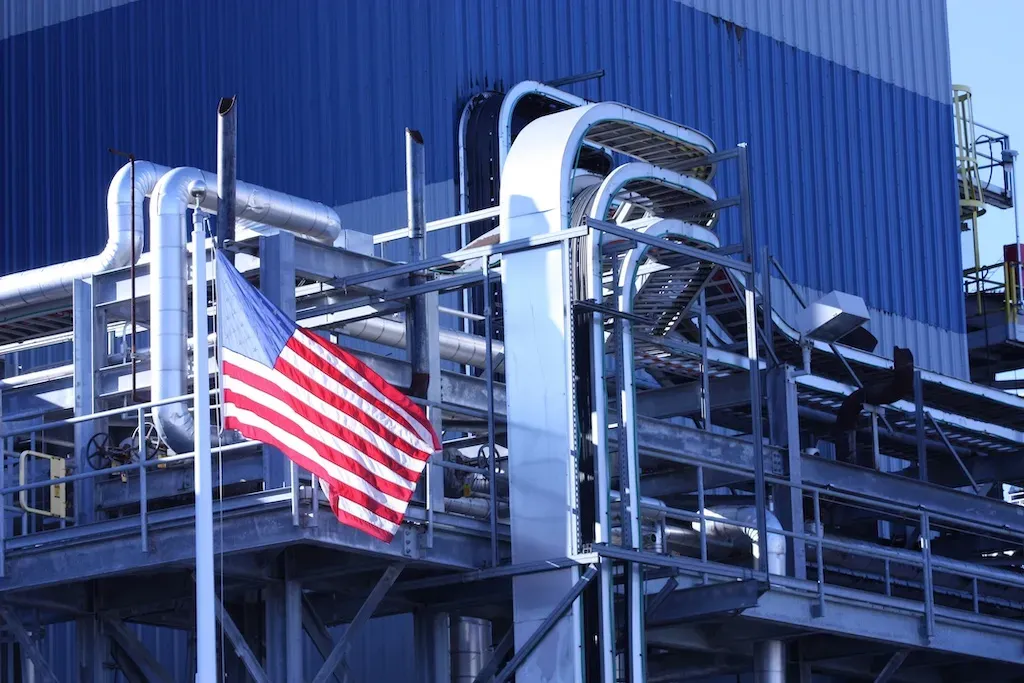White House Releases ‘Buy America’ Guidance, Does Not Budge on Fiber as ‘Construction Material’
Possible BEAD waivers are expected to be announced by end of summer, an official told Broadband Breakfast.
Teralyn Whipple

WASHINGTON, August 15, 2023 – The White House released guidance Monday clarifying rules surrounding the domestic procurement of materials used for projects funded under the Infrastructure, Investment and Jobs Act, but did not change fiber’s characterization as construction material.
The rule, called the Build America Buy America provision, requires that manufactured products are American-sourced and that the cost of components of the products that are manufactured in the U.S. must meet or exceed 55 percent of the total cost.
BABA requirements apply to steel — which is used in constructing wireless broadband towers — and iron products, manufactured products, construction materials, and aggregates and cement. The guidance specifies what material is classified as construction materials, which includes fiber optic cable and optic fiber as separate and singular construction materials.
Some in the industry have called for fiber to be characterized as a manufactured material because of its combination of components.
This definition of fiber will help avoid “the confusion and compliance costs that may have resulted from attempting to separately apply every construction material standard that applied to different components of fiber optic cable,” the guidance said, in response to industry concerns that BABA requirements will delay projects funded through the $42.5-billion Broadband Equity, Access and Deployment program.
However, some have said this may make it difficult to meet the BEAD build timelines.
Limited waivers for these requirements under BEAD have not yet been released, but are expected by the end of the summer, an official at the NTIA told Broadband Breakfast.
The guidance restates the circumstances defined in statute under which a waiver of these requirements may be justified: public interest, unreasonable cost, and nonavailability. It includes guidance on the type of process that a federal agency should implement to allow recipients to request waivers, including the process a federal agency should follow in issuing proposed and final waivers.
According to the guidance, the Office of Management and Budget acknowledged commenter’s concerns about the BABA requirements and “finds that the waiver process is generally the appropriate mechanism for additional relief on these projects.”
It stated that if a federal agency “finds that a waiver is justified under the circumstances… a waiver may be available. The waiver process may also be the appropriate mechanism where the revised guidance may be considered excessively disruptive and contrary to the public interest. OMB will continue working with federal agencies to identify any additional flexibility that agencies can deploy to address the concerns raised in the comments about timelines.
It added that the waiver process recognizes concerns about supply chain availability and increased costs as potential rationales for the head of a federal agency to propose a waiver. Experts have called for waivers ahead of broadband awards, citing concerns that providers will not be able to complete builds without outsourcing material.
“OMB notes that BABA provisions will be applied in a manner consistent with U.S. obligations under international agreements,” it read. “OMB has not modified its existing guidance on this topic.” All proposed waivers citing public interest must include a detailed written statement, it added.
Federal agencies may also offer further guidance on this topic for their specific programs, read the guidance. Only federal agencies are authorized to issue waivers, not OMB on behalf of those agencies, it clarified.
“Federal financial assistance recipients may request waivers from a federal awarding agency if the recipient reasonably believes a waiver is justified,” it said.
The United Steelworkers Union said that it is “pleased to see the Biden administration move forward with implementation of BABA… Strong BABA implementation is a critical step toward reshoring lost industrial capabilities, strengthening broken supply chains, and establishing the United States as a leader in the manufacturing of new technologies.”
Mitch Landrieu, senior advisor to President Joe Biden added that the guidance “helps make sure that when we’re building this infrastructure – from roads and bridges to clean energy and high-speed internet – we’re using American goods made by American workers.”
This month, Nokia announced an extensive fiber electronics manufacturing plan in Wisconsin that will provide equipment for new BEAD project builds.
The guidance also defined a “manufactured product” as articles, materials, or supplies that have been processed into a specific form or combined with other components to create a product with different properties from the original. It clarifies that construction materials and iron or steel products should not be considered manufactured products.








Member discussion